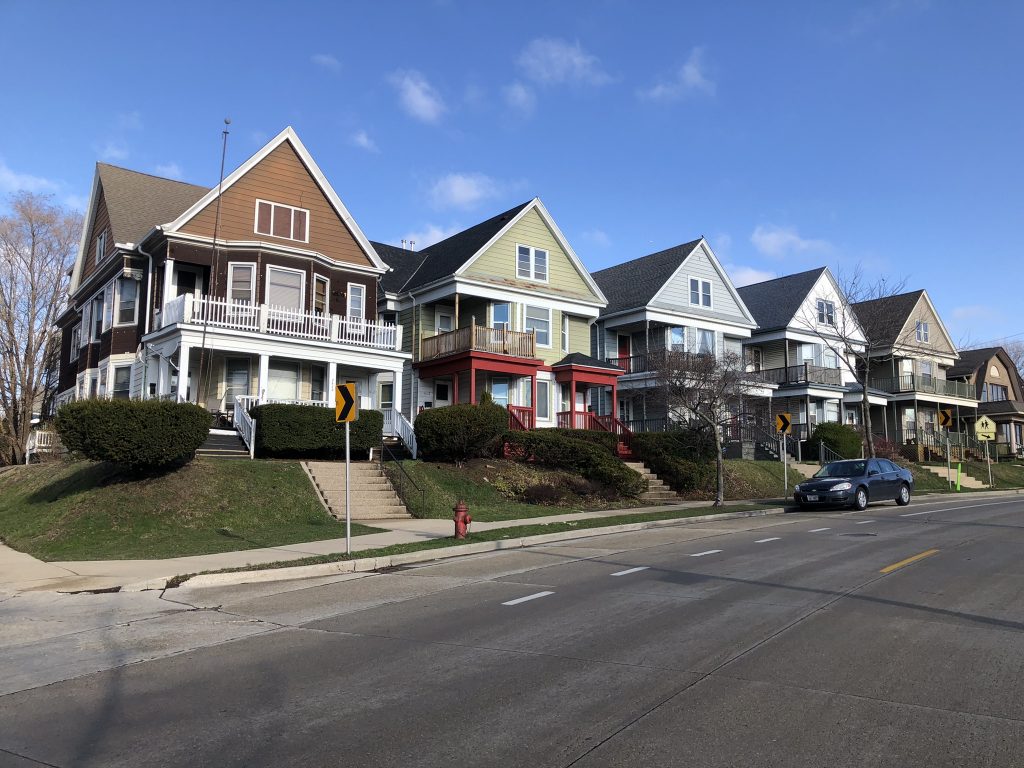New Penalties For Landlords Who Don’t Fix Lead Hazards
Fees, citations, even demolition for non-compliance after child tests positive for lead.
A proposal pending before the Common Council would increase the penalties for landlords who don’t correct lead hazards in their properties. It also adds protections for tenants who report lead-based nuisances.
The leading sponsor and council president Jose G. Perez said he is advancing the ordinance following the city’s injection of $26 million in federal funds to address childhood lead poisoning and growing confidence in the Milwaukee Health Department.
The ordinance would come into effect primarily after a child tests positive for elevated blood lead levels and is referred to the city’s childhood lead poisoning prevention program. Inspectors visit homes to check for lead hazards, often peeling or chipping paint. Orders to correct hazards are issued, which triggers fee-based inspections.
The proposal would grant the health commissioner authority to charge a $150 fee for inspections triggered by a lead hazard reduction order, and $300 for reinspections. No charge would be issued if an inspection reveals compliance with the order. Sustained non-compliance could result in fines of up to $30,000.
Landlords would be prevented from evicting tenants, raising rents or otherwise retaliating when the tenant reported a possible lead violation or took other actions to address a “lead-based nuisance.” Property owners would still be able to evict tenants for other issues, but would need a “preponderance of evidence” to prove it was not driven by lead-related actions.
Heiner Giese, legal counsel for the Apartment Association of Southeastern Wisconsin, said his organization was concerned about the presumption of innocence for tenants. “The problem is… any eviction is presumed to be for retaliation,” said Giese. The attorney said it would allow tenants to delay evictions at a cost to landlords.
“There are other reasons that a landlord could raise to show good cause,” said assistant city attorney Tom Miller. He said it moved the balance of power towards tenants. “You already have the state statutes written and it’s clearly in your court.”
But Giese said that shift was already happening. “That imbalance is changing somewhat now that tenants have attorneys,” said Giese referring to city and county right-to-counsel efforts.
Perez said the lead-based tenant protections were being added at the request of community members. “They’re afraid, they’re afraid of their landlords,” said the alderman of the perceived low number of requests.
Coalition on Lead Emergency (COLE) member Maria Beltran spoke in favor of the proposal, particularly its tenant protections. A Lindsay Heights resident, she said two of her grandchildren needed therapy as a result of lead poisoning. Beltran said she doesn’t rent out the other half of her duplex because of fears of lead poisoning. “Our homes are really bad,” she said.
“There is a real stick here for those extreme cases,” said Ald. Scott Spiker.
“I hope this legislation is another tool that helps us get to a point where we don’t have to see reports of so many people being infected with lead at such high levels,” said Alderwoman Milele A. Coggs in thanking Perez for his work. She has previously requested a lead-safe property database be compiled.
Ald. Russell W. Stamper, II called for the proposal to also apply to city-owned homes. Perez committed to working with him on the issue.
The proposal is co-sponsored by council members Spiker, Coggs, Stamper, JoCasta Zamarripa, Mark Borkowski and. Khalif Rainey.
The committee unanimously recommended adopting the proposal.
The full council is to consider the proposal on July 28. But deputy health commissioner Tyler Weber said even if adopted it would take time for it to be fully implemented. “It’s not going to be a light switch as soon as this is adopted,” he said, citing training and IT systems. “We are working to continue to scale up the department.”
If you think stories like this are important, become a member of Urban Milwaukee and help support real, independent journalism. Plus you get some cool added benefits.
More about the Lead Crisis
- Rep. Madison Proposes Restoring Local Control Over Lead Inspections - State Rep. Darrin Madison - Jan 6th, 2026
- $43 Million Later, MPS Says Classrooms Are Safe From Lead Dust - Corrinne Hess - Dec 18th, 2025
- MPS Buildings Cleared of Lead-Paint Risks after 10-Plus Months of Work - Milwaukee Public Schools - Dec 17th, 2025
- Wisconsin Moves to Require Lead Service Lines Replaced By 2037 - Danielle Kaeding - Dec 11th, 2025
- Gov. Evers, DNR Announce More Than $159 Million to Ensure Clean, Safe Drinking Water for Wisconsinites in 29 Municipalities - Gov. Tony Evers - Dec 10th, 2025
- EPA Announces $3 Billion in New Funding for States to Reduce Lead in Drinking Water - U.S. Environmental Protection Agency - Nov 25th, 2025
- Wisconsin Communities Get $282 Million for Drinking Water Projects - Danielle Kaeding - Nov 19th, 2025
- MKE County: County Launches Lead Abatement Program - Graham Kilmer - Nov 9th, 2025
- Milwaukee County Launches Lead Remediation Program to Reduce Lead-Based Paint Hazards in Homes in Suburban Communities - David Crowley - Nov 5th, 2025
- Wisconsin Improves Child Lead Testing Rates, Urges Continued Testing and At-Home Prevention - Wisconsin Department of Health Services - Oct 21st, 2025
Read more about Lead Crisis here
Political Contributions Tracker
Displaying political contributions between people mentioned in this story. Learn more.
- December 13, 2018 - José G. Pérez received $50 from Mark Borkowski
- May 5, 2015 - José G. Pérez received $100 from JoCasta Zamarripa
- November 12, 2014 - José G. Pérez received $100 from Heiner Giese
City Hall
-
Council Blocked In Fight To Oversee Top City Officials
 Dec 16th, 2025 by Jeramey Jannene
Dec 16th, 2025 by Jeramey Jannene
-
Latest Effort to Adopt New Milwaukee Flag Going Nowhere
 Dec 3rd, 2025 by Jeramey Jannene
Dec 3rd, 2025 by Jeramey Jannene
-
After Deadly May Fire, Milwaukee Adds New Safety Requirements
 Dec 2nd, 2025 by Jeramey Jannene
Dec 2nd, 2025 by Jeramey Jannene






















